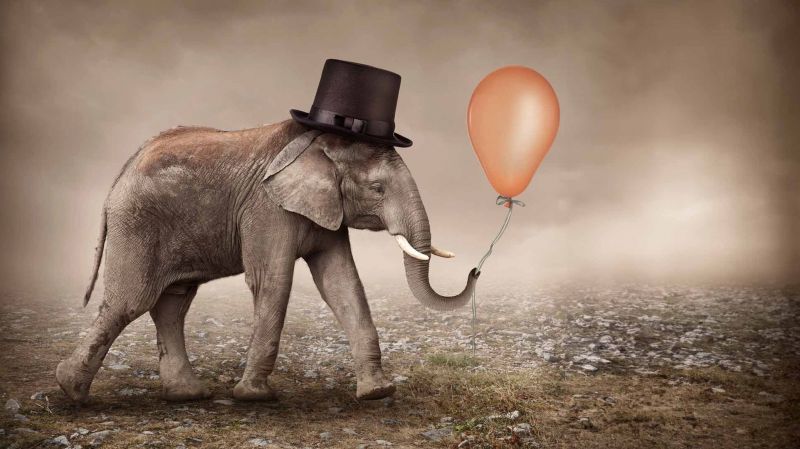How Not to Love Your Ideas to Death
Not everyone is going to adore your light-bulb moments as much as you. The good news: the critics can help

You’re sitting in a brainstorming session and have just come up with a fabulous idea for a new product. You immediately fall in love with it and know others will too.
Unfortunately, when you share this novel idea with your colleagues, they only point out the negatives and poke holes in the idea. Maybe it’s too expensive, unrealistic or doesn’t fully address market needs. Before you know it, the idea you’ve fallen in love with has lost all its attraction.
What do you do next: Abandon your novel idea or stick with it, convinced that others will finally see the light?
It could come down to personality. According to one recent study, those who see themselves as different from others and defined by independent characteristics (such as “I am smart” or “I am creative”) are more likely to feel attached to their ideas and persist in the face of resistance. Those who define themselves by the groups they belong to or their personal relationships (such as “I am on a sports team” or “I am a parent”) are less likely to become attached to their ideas.
But personality is not the whole story, says Salman Mufti, associate professor of management information systems at Smith School of Business. Mufti has worked extensively in decision-making at the managerial level and has experienced first-hand the ideation process within organizations. From his own experience (and regardless of personality type), he has found that you don’t have to give up on ideas you love in the face of doubt. But you must be willing to consider others’ opinions to refine them.
This balancing act involves many factors, including being open to constructive feedback, as well as some self-awareness and a willingness to change your mind.
Love at first sight
Mufti says it’s always important to feel passion for an early idea. When people are emotionally attached to their idea, they’re more driven to bring it to fruition.
“There’s a concept called anchoring, which means we give more weight to the very first piece of information we see, read or get,” Mufti says. “In some ways, I suspect you’re anchoring yourself with your own first idea. This makes you become more attached to it.” However, he adds, our initial inspiration is often incomplete and doesn’t fully address the problem at hand. It may be a simplified version of a solution that needs development.
Mufti has noticed throughout his career that certain types of people do not give up easily on their early ideas. Often, he says, these individuals have achieved past success with them.
“Sometimes, that causes people to become a bit overconfident. They’ve had such a great track record, and therefore have that credibility,” he says. “These individuals might consider themselves to be experts, but experts can be wrong, and it happens all the time.”
Team leaders play an important role in managing different personalities and their attitudes toward their early ideas. Before a brainstorming session even begins, team leaders must inform team members that they will be challenged on their ideas, and then establish appropriate norms.
“The team needs to know the reason they will be challenged,” Mufti says. “That reason is to make sure they collectively come to a good, strong conclusion on what needs to be done. Leaders must lay down some groundwork upfront.”
Keep emotions in check
It might not be easy, but Mufti says people also need to set expectations for themselves. They must first accept they are in an organizational brainstorming setting that involves an iterative process. As part of that process, colleagues are expected to voice their doubts and test the strength of an initial idea.
“This is a pretty big mindset change for all of us because whenever we come up with something and share it with others, the natural wish is to get praise,” he says.
While it might be difficult to not take feedback personally — especially when you’re emotionally invested in your early idea — Mufti says it is better for creators to change their mindsets and to seek out critiques. If someone is emotionally attached to their early idea, they should view constructive criticism as an important step to helping improve it.

Mufti says this shift in thinking — to be aware of your thoughts when your idea is being criticized — comes with experience. It takes practice. “Maybe start with smaller ideas first, so you get used to the process,” he says. “It will help you get used to this way of thinking, and you can graduate towards bigger ideas.”
Additionally, Mufti says that workers are often encouraged in a brainstorming setting to develop multiple ideas. This may help prevent them from clinging to a single initial inspiration that may not be viable. Individuals can share their initial idea, he says, but then perhaps offer up a few more ideas for the group to refine.
“Once you figure out which idea is better than the other, then you can test it,” Mufti says. “To me, that process is more creative than coming up with one single brilliant idea in the beginning.”
Power of team input
Once brainstormers shift their mindset, their teams can play an important role in helping them decide if they should stick with their early idea.
It’s tough to play devil’s advocate on your own, Mufti says, and a team that has diverse thinking styles can help someone decide if an idea is worth pursuing. “We unconsciously look for information or reasoning that supports the idea we have in our head,” Mufti says. “We need to involve others and have them challenge it.”
He adds that individuals can manage their emotions by considering the early idea as the beginning of its evolution — which has the potential to further develop with the help of others through refining, reasoning and testing.
“I like to think that in most cases,” says Mufti,” it’s more about collective brilliance rather than individual brilliance.”





